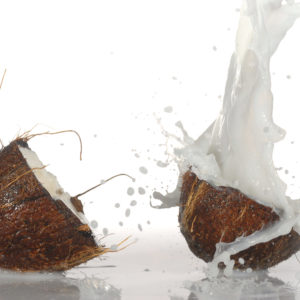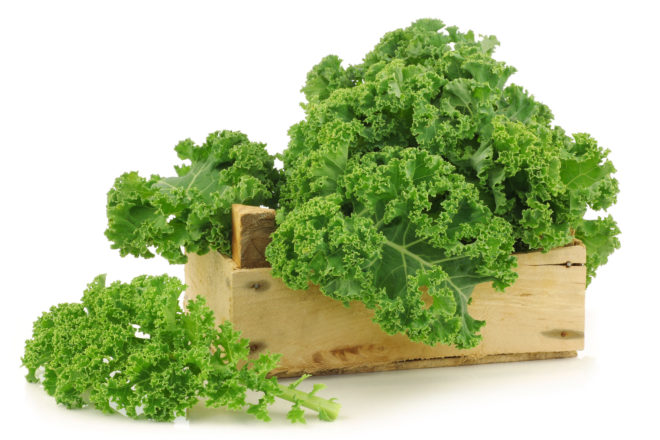Research confirms that food has the ability to heal or harm our bodies. Many doctors however, were trained to believe that environmental factors like diet didn’t play a major role in disease prevention or treatment.
The question we will look at here is can food fight cancer?
Today scientific evidence points towards something quiet astounding; not only may nutrition play a key role in the prevention of diseases such as cancer, it may also play a critical role in how our body fights the disease.
Research indicates that diet contributes to 25 – 30% of cancer-related mortality and other studies suggest certain foods are capable of starving cancer cells to death.
Over the past few years I’ve been working with cancer patients, coaching them through a dietary protocol called the ketogenic diet. It is this dietary approach that is getting a lot of attention in cancer therapy and research today.
In laboratories all over the world studies are being performed to test the theory that this diet may starve certain tumours by cutting off the energy supply, glucose, to cancer cells.
In specific types of cancer, such as brain tumours, early results and clinical observations indicate that a ketogenic diet has the potential to be more effective than traditional treatments such as chemotherapy.
The current research is still in the early stages and there is little long term scientific evidence to support this, but clinical studies suggest in some cancers it may stop the progression of tumours, inhibit metastases, and kill cancer cells.
So What Is A Ketogenic Diet & Could It Hold The Key To Better Cancer Management?
A ketogenic diet is a high fat, adequate protein and low carbohydrate approach to eating. The ketogenic diet has been around since the beginning of time and many traditional cultures lived healthy, long lives on this protocol.
For the traditional Inuit, diet was governed by food availability, so they ate very little fruit and vegetables and primarily survived on protein and fat. These Inuit were thought to have one of the lowest rates of heart disease and cancer in the world, debunking the link between dietary fats and heart disease.
The standard western supermarket diet is high in carbohydrates as found in grains, sugars and most processed foods. As your body digests these carbohydrates they are converted into glucose, (sugar), then glucose molecules fuel each cell in your body.
When we reduce our carbohydrate intake to a minimum (usually 5 – 10 % of daily caloric intake) there is no longer enough glucose to fuel the body, so the body seeks out a secondary fuel source, which is fat.
Stored fat cells and/or dietary fats are then processed in the liver into ketones and these ketones become the primary fuel for each cell in your body. This is called fat-adaptation, and once this occurs your body enters a ketogenic state and is in nutritional ketosis. The side-effects of this state can be extremely positive.
The term Nutritional Ketosis was coined by Dr Stephen D. Phinney some 30 years ago to clarify confusion amongst physicians around ketosis induced by carbohydrate restriction, versus ketosis caused by the absence of insulin in type 1 diabetes (which leads to ketoacidosis).
Ketones in extremely high levels can be a toxic by-product of fat metabolism. However in very low doses they are a useful substrate for healthy fat metabolism and weight loss.
There is no more risk of ketoacidosis in healthy individuals by inducing nutritional ketosis, than there is in inducing a diabetic coma through extreme blood sugar levels in healthy individuals. A healthy body will keep these levels in a safe range.
 Sugar, Ketosis & Cancer
Sugar, Ketosis & Cancer
Cancer cells do not have the ability to adapt to using ketones as fuel, so if glucose is no longer a source of fuel for these cells, they can literally starve to death. Hence the ketogenic diet has sparked enormous interest in cancer research.
We still don’t know how cancer kills us exactly, but what we do know is that it depletes us of glucose (sugar, our fuel source).
Cancer loves sugar; it robs your healthy human cells so it can use this energy to stimulate tumour growth. Once cancer is riddled throughout a body, it can virtually starve a patient to death, which may be why we see people wasting away with cancer.
Ask any oncologist if their cancer patients are sugar addicts. The problem is that it is not the patient themselves who desire the sugar; it is the cancer in their bodies. By cutting off the sugar supply to glucose dependent cancers, the theory is that this could lead to the death of the cancer cells.
Key Dietary Requirements Of A Ketogenic Diet
When beginning a ketogenic diet it is usually recommended to start with a fast of 1-2 days. Fasting therapy also has its merits and I would recommend you investigate these benefits.
For now suffice to say that intermittent fasting is part of Whole Food Secrets ketogenic dietary protocols because it helps stimulate the production of ketones.
In cancer patients, up to 90% of your daily requirement in calories comes from healthy fats. While this sounds like a lot, keep in mind that fats are nutrient dense.
There are a number of delicious ways to enjoy healthy fats such as dressings; hollandaise, mayonnaise, salad oil dressings, homemade chocolate with cocoa butter and coconut oil. In the average person about 10 to 14 servings (tablespoons) are desirable each day.
Beneficial Fats In A Ketogenic Diet
- Coconut oil
- Macadamia nuts and oil
- Olive oil
- Flaxseed oil
- Avocado
- Ghee (clarified butter)
Carbohydrates are restricted to lower glycaemic foods and in small doses making up to 10% of your daily energy intake. Small amounts of proteins make up to 20% of your daily intake.
I have coached many cancer patients through my cancer ketogenic dietary protocol with great success.
It is quite a technical nutritional approach though, which requires an experienced person to ensure they reach optimal ketone to glucose ratios, while maintaining an alkalised state, which is also important for cancer.
What About Meat & Dairy?
Some types of cancer can adapt to obtaining fuel from glutamine or glutamate which are non-essential amino acids found in protein. These two amino acids are interchangeable, one converts into the other and our body has the ability to produce it even without dietary sources.
Glutamate is not only beneficial, it’s essential for life and the most abundant neurotransmitter in the brain. Glutamate works as a type of stimulator in the brain, and in excess, is linked to ADHD, autism, migraines and chronic inflammation.
Like any stimulant, too much of it is like drinking too much coffee and it poses problems to balanced brain functioning.
Glutamate is also known as the ‘feeding pump’ to certain cancers and can help the spread of metastases. Once it takes hold of these tumours, it has demonstrated to spread aggressively.
This is not to say that we should avoid glutamate or glutamine completely, but a diet low in foods abundant with these proteins could be beneficial.
Fortunately, a healthy and balanced ketogenic diet can easily cater for this.
Foods High In Glutamate & Glutamine
- Monosodium glutamate (MSG, flavour enhancer 621, yeast extract)
- Soy
- Meat & fish
- Eggs
- Dairy casein
- Wheat gluten
- Many protein powders such as whey and anything hydrolysed
- Various types of seeds & nuts
All foods high in glutamate should be consumed in moderation, however many of these foods may also contain anti-angiogenic properties and may be beneficial for fighting cancer as well. This is why so many people are confused about which dietary approach to take and guidance is required.
Angiogenesis & Anti-Angiogenic Foods
Another important approach to nutritional cancer therapies is understanding angiogenesis. Angiogenesis literally means blood creation. In science, the term angiogenesis refers to the body’s ability to grow new blood vessels as required and to restore them to normal levels when they are no longer required.
We are each born with approximately 60,000 miles of blood vessels, enough to circle the earth twice. As adults, blood vessels don’t normally grow except in a few situations.
In women blood vessels grow each month to form the lining in the uterus and during pregnancy, they form the placenta connecting mother and baby. When the body is injured, blood vessels have to form a scab to heal a wound and it does this through angiogenesis, with the body releasing angiogenic stimulators to induce growth of new blood vessels to heal and protect a wound.
Once healed, angiogenesis will release anti-angiogenic inhibitors to prune back the excess growth of new vessels to the ‘baseline’ they operated at prior to injury.
In at least 70 known diseases however, there appears to be defects in the system where the body can’t either stimulate growth of new vessels, or prune back excessive growth and angiogenesis gets out of balance.
In cases where there is insufficient growth, diseases such as coronary heart disease, stroke, hair loss, and wounds that don’t heal occur. In the case of excessive growth, we see endometriosis, arthritis, psoriasis and cancer.
Worldwide there is a large movement toward anti-angiogenic drug therapy, which basically act to block what researchers believe to be the root cause of how cancers grow.
However, what researcher William Li has found, is that Mother Nature left a myriad of natural anti-angiogenic drugs in fruits, vegetables and herbs and some are even more potent than some cancer drugs.
These foods could be the most potent way of preventing cancer before it starts, as well as a valid addition to cancer therapies.
In his research Dr Li has also discovered that in combination, these foods seem to have a synergistic effect in anti-angiogenic potency. These anti-angiogenic foods should become the foundational diet for anyone with cancer.
Anti-Angiogenic Foods
While most plant based foods contain anti-angiogenic inhibitors, some have been clinically researched as particularly potent.
- Squid/calamari
- Garlic
- Turmeric
- Parsley
- Cooked tomatoes (add olive oil to increase potency)
- Lentils
- Berries
- Red wine and grapes
- Tea
- Soy
- Spices and herbs
- Kale
- Cruciferous vegetables
Combined with a ketogenic low glutamate diet, this becomes a powerful dietary program that is easy to fit into your lifestyle and is a joy to eat. It also has additional side effects of boosting energy and mental clarity, which has to make life a little easier.
You can find much more information on living a holistic lifestyle in these free magazines and on our YouTube channel.
Deborah Murtagh – Wholefood Expert
Deborah Murtagh has over 20 year’s clinical experience in natural medicine and whole food coaching. Deborah founded Whole Food Secrets, which also offers a range of online programs dedicated to traditional foods coaching and ketogenic dietary protocols for athletes, weight loss, cancer, diabetes and chronic diseases. Deborah has thousands of students in over 38 countries around the world and is also a professional member of the New Zealand Guild of Food Writers. For inspiring recipes or to find out more about her coaching services, please contact www.wholefoodsecrets.com
To find out more information about this diet, view our online school, or for private coaching options with Deborah, please visit us.
DISCLAIMER: This article is not intended to replace professional advice or offer dietary recommendations. Please consult your healthcare professional.








My husband has pancreatic cancer would this help
Carol. Eating foods as natural as possible is always a help when looking at helping the body to heal. However every body is different and cancer is a disease that needs specialist treatment. Food will be one angle to look at and there needs to be a holistic approach. I suggest finding a good holistic doctor to help your husband.